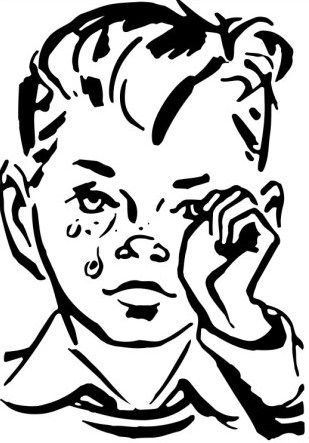HOT TOPIC: Presbytarian Church Backs Smacks

The debate over the best way to discipline children is not a new one. In a very simplistic overview, parents can be categorised into two distinct camps; those who believe that there is no harm in giving a child a smack in order to teach them right from wrong, and those who believe that violence in any degree has no place in a loving family environment. In reality, the distinctions are often blurred. A parent who opposes smacking in theory, faced with a child about to run onto a busy road, or about to stick something into an electrical socket, may have a knee-jerk reaction and smack her child’s hand or bottom. On the other hand, what is to stop a parent who does believe in using ‘reasonable force’ to discipline their child, overstepping the boundaries, and in a moment of extreme stress, anger or temper, inflicting serious harm on their child?
This contentious debate is back in the media this week, with the Presbytarian church warning that under a controversial new human rights charter, Victoria will be joining NSW in outlawing the use of corporal punishment. The church opposes this ban saying that ‘many Australian families use reasonable physical force from time to time…There is a significant body of research confirming its utility in raising children well.’
But Australian Childhood Foundation chief executive Dr Joe Tucci yesterday said it was never right to hit children and NSW’s lead should be followed.
Dr Joe Tucci, Australian Childhood Foundation chief executive, countered this argement yesterday by saying it was never right to hit children and NSW’s lead should be followed.
‘If parents are really angry or frustrated at the time that they’re doing it, they could inadvertently hurt kids and that’s our concern about it.”
 It seems we may never reach consensus on this contentious issue. Regardless of your beliefs however, I would like to invite you to think about it from another angle. Let’s step away from the theory for a moment, of what the long term effects (either positive or negative) are of smacking your child, and put it into the perspective of the present. What are the effects of the here and now, to both you and your child?
It seems we may never reach consensus on this contentious issue. Regardless of your beliefs however, I would like to invite you to think about it from another angle. Let’s step away from the theory for a moment, of what the long term effects (either positive or negative) are of smacking your child, and put it into the perspective of the present. What are the effects of the here and now, to both you and your child?
Children who have been smacked often experience feelings of disillusionment, sadness, anger, confusion, resentment, humiliation and even fear.
Parents, whether they believe in the benefits of corporal punishment, or resort to it in a moment of stress or anger, often regret hitting their child after the event. Many realise in hindsight that they could have dealt with the situation in a more considerate way, and many admit that they used more force than they had intended.
I will hold my hand up and say that although I do not believe in smacking in principal, I have on very rare occasions given both of my boys a smack. Besides sending them, what I deem to be, a very dangerous message about using violence as a ‘quick-fix’ conflict resolution, I beleive that in that moment I broke their trust in me. The person that they rely on to always protect, love and care for them,under the guise of ‘teaching them a lesson’ hurt them. (By this I mean that I smacked them on their thigh).
I honestly do not believe it taught them anything of worth.
I too was effected. I was left with the feelings of guilt and inadequacy as a parent. The look of suprise, shock, hurt and anger in their eyes seared into my memory. I had compromised my beliefs, given in to the daily strains of tiredness, anger and stress and had acted in a way that made me feel ashamed.
Parenthood is a role that brings both immense joy and enormous responsibility, and rest assured that none of us get it right all of the time. But as parents we regard ourselves as the protectors of our children. We love, cherish, and want to nourish them both physically and psychologically, in order to enable them to develop into well-adjusted adults with healthy self-esteem. It therefore seems anomalous that parents who are usually concerned when their child feels hurt or unhappy would knowingly, and by their own hand, inflict both physical and emotional pain and distress on their child, particularly when there are alternatives to using physical discipline, which are effective, respectful to children, do not model violent behaviour, and encourage children’s positive development.
There is no doubt that parenting is a tough gig, and I am always mindful of respecting the choices of others to parent their children the way they see fit. We should support one another not judge one another.
What I do believe however, is that a law banning smacking will have very little impact if any.
Rather than putting laws into place that could see parents facing court over smacking their children, it seems to me that the best way forward to actually begin to break the cyclical pattern of corporal punishment against children (‘my parents did it to me, and I turned out ok’) is to equip parents with the necessary tools to discipline their children effectively and without physical force. Surely educating parents and teaching them how to incorporate these alternatives into their parenting will benefit both the parent, not to mention the child, far more than having criminal charges laid against them?












